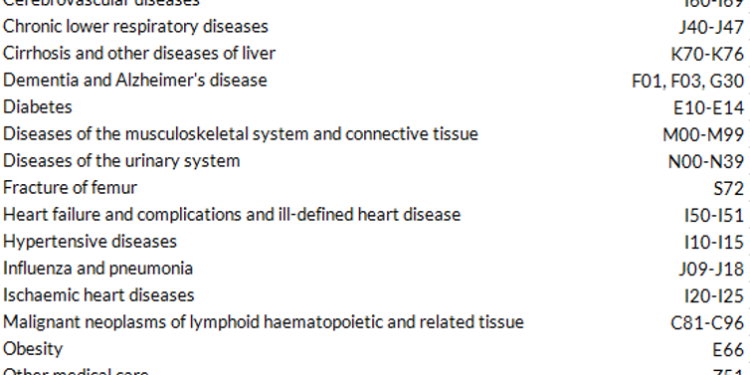There is no doubt that the pandemic has led to many deaths; however, in the past week, new claims have emerged that the true number of people who have died from COVID in England and Wales is much lower than previously thought. These claims have been widely shared on social media and even amplified by a senior MP. Can it really be true that new data shows that COVID has killed far fewer people than we previously thought?
To arrive at an answer, we first need to delve into the various ways that COVID deaths are counted in England and Wales. There are two main sources of this data: the first, published by the UK Health Security Agency (UKHSA) and featured prominently on the government’s coronavirus dashboard, is a simple count of all deaths that occur within 28 days of a positive COVID test.
The second, published by the Office for National Statistics (ONS) is based on death certificates that list COVID as a cause of death. Being based on a medical assessment of the circumstances of each individual death, the ONS figures represent the gold standard.
The UKHSA figures will include some deaths that are clearly unrelated to COVID – for example, somebody who has a mild case of COVID and is involved in a car accident three weeks later – and exclude some COVID deaths where someone is in hospital for more than 28 days. The UKHSA data gives us a picture of what is happening now – albeit an imperfect one – while the ONS data takes several weeks to process.
We also need to understand how death certificates work in England and Wales. When somebody passes away, a medical professional completes a death certificate. This includes a field for the “disease or condition directly leading to death” – often called the “underlying cause”. It also includes the option to list one or two diseases or conditions that were not the underlying cause, but which contributed to the death (“contributory causes”).
The data that the ONS publishes shows that, in 2020 and 2021 combined, 157,889 deaths were registered where COVID was mentioned on the death certificate. Of these, 139,839 listed COVID as the underlying cause. In almost 90% of cases where COVID was a factor in somebody’s death, it was considered by medical professionals to be the primary reason they died. So where does the figure of 17,371 COVID deaths come from?
Freedom of information request
This figure originates from a freedom of information request to the Office for National Statistics that asked for the number of deaths where COVID was the only cause of death recorded. This is complicated by the fact that often COVID itself can cause complications, such as severe respiratory difficulties or organ failure, which will then be listed alongside COVID on the death certificate.
To exclude these deaths, the ONS responded by giving the number of deaths where no “pre-existing conditions” were listed on the death certificate. Which comes to 17,371 for the period up to the end of September 2021. But what is a “pre-existing condition”?
Pre-existing conditions and their International Classification of Diseases (ICD) codes

Office for National Statistics
This list is extensive, including high blood pressure, asthma, COPD, diabetes and a wide range of other common conditions. The argument being made by some is that 17,371 is the true number of COVID deaths, because people with these pre-existing conditions, who make up the vast majority of deaths that list COVID on the death certificate, were already sick. But even a cursory glance at the list makes it clear that this will be incorrect for a great many people.
Over a quarter of adults have high blood pressure, 4 million people in England have diabetes and a similar number have asthma. Having one of these conditions is neither a death sentence nor a sign of being in poor health. You almost certainly know several people with one or more of them, or are living with one yourself.
The idea that people with a pre-existing condition are at death’s door is simply untrue. Over half of people aged 50 and over have at least one long-term health condition. But if someone with one of these conditions is unlucky enough to catch COVID and subsequently die, all it takes is for the condition to have some impact for it to end up being listed as a contributory cause on the death certificate.
Let’s take asthma as an example. COVID frequently attacks victims’ lungs, leading them to require ventilation. As a respiratory condition, asthma may well exacerbate these difficulties and will therefore be listed on the death certificate if the person dies. It would be bizarre to claim that the person died of asthma on this basis. Perhaps they would not have died if they didn’t have asthma, but they certainly wouldn’t have died if they hadn’t got COVID.
The vast majority of people who get seriously ill with COVID were living full, independent lives before they were hospitalised. And reasonable estimates suggest that the average number of years of life lost per COVID death is around ten. The idea that people who died from COVID are all extremely ill and would have died soon anyway is not borne out by the facts.
To argue that the deaths from COVID of people with pre-existing conditions don’t count as true COVID deaths is to say that people with pre-existing conditions don’t matter; that their lives are expendable and shouldn’t be considered when assessing the impact of the pandemic. Over 140,000 people with pre-existing conditions have died of COVID in the last two years. We should be mourning this tragic loss of life, not minimising it.
![]()
Colin Angus does not work for, consult, own shares in or receive funding from any company or organisation that would benefit from this article, and has disclosed no relevant affiliations beyond their academic appointment.






























